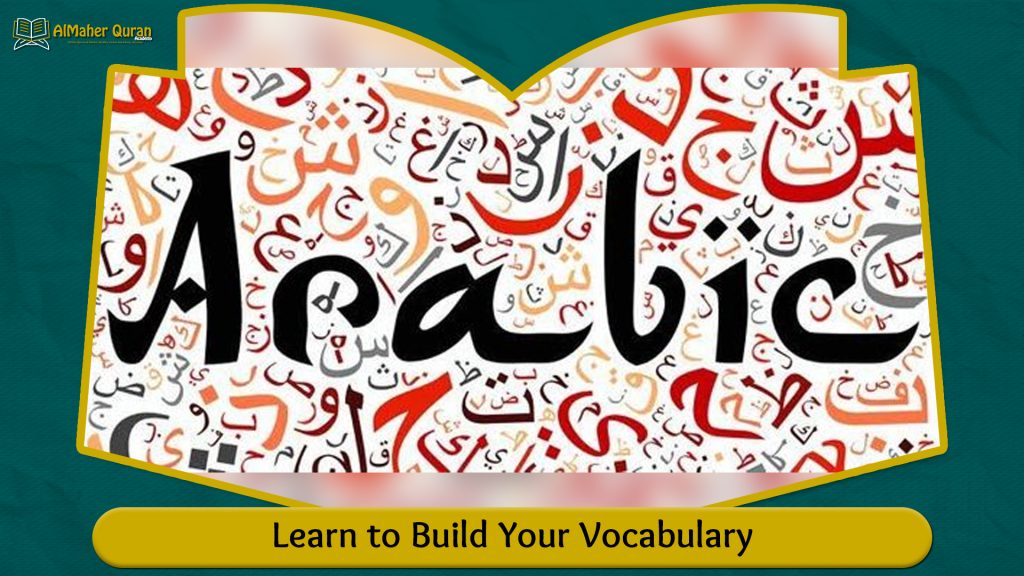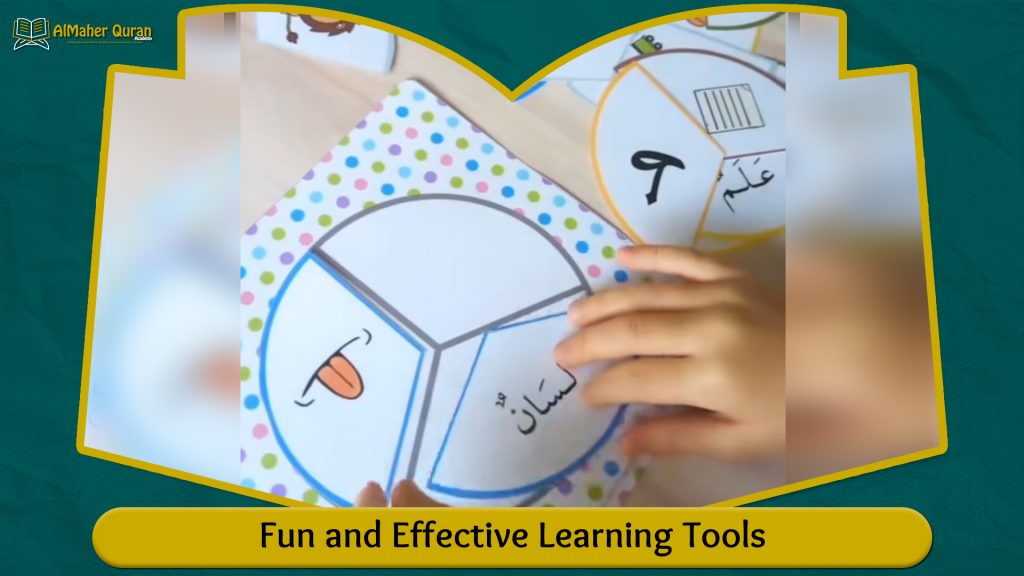Table of Contents
ToggleHow to Learn to Speak Arabic Fluently: Step-by-Step Guide
To learn to speak Arabic fluently, start with the alphabet and basic phrases, practice daily with listening podcasts and learning with language tutors.
Immerse yourself by reading, writing, and chatting with Arab friends.
Use structured courses like AlMaher Quran Academy for guided lessons.
Stay consistent, and you’ll gain confidence fast.
Learning to speak Arabic opens doors to rich cultures and global opportunities.
With its unique script and sounds, mastering Arabic can be challenging yet rewarding.
This guide offers practical steps, resources, and advice to help beginners develop speaking skills and communicate effectively in the Arabic language.
With the right approach, dedication, and resources like AlMaher Quran Academy, you can achieve fluency faster than you think.

Why Learn to Speak Arabic?
The Arabic language is one of the most widely spoken languages in the world, with over 300 million native speakers across Arab countries.
It’s also the official language of more than 20 nations and holds significant importance in global business, diplomacy, and religion.
Whether you’re interested in Modern Standard Arabic language (MSA) or a specific dialect.
Gaining proficiency will boost your confidence and connect you with millions of speakers.
Steps to learn to speak Arabic.
Learning to speak Arabic fluently requires a clear strategy.
Start to learn by mastering the alphabet and pronunciation, then build basic vocabulary through daily practice.
Engage with Arab speakers, immerse yourself in language media, and study grammar systematically for speaking Arabic.
Consistent learn and cultural immersion will transform you from a beginner to a confident speaker.
Follow these proven steps to unlock your Arabic language journey
Step 1: Learn to start with the Basics
Start with the Basics, but how can I learn Arabic fluently?
It is essential to master the Arabic alphabet before delving into complex grammar.
Unlike English, Arabic uses a unique script with 28 letters, each changing form depending on its position in a word.
Spend time listening to audio pronunciations and practicing writing each letter.
AlMaher Quran Academy offers structured classes for beginners, making it easy to grasp the basics.
Their Best Arabic Lessons Online include video tutorials, reading exercises, and pronunciation drills to help you build a strong foundation.

Step 2: Learn to build Your Vocabulary Daily
One of the fastest ways to learn Arabic is by expanding your vocabulary.
Learn to begin basic words and phrases used in daily conversations, such as greetings, numbers, and common expressions.
- Use flashcards or apps to memorize new words.
- Label objects around your home in the Arabic language to learn it.
- Keep a dictionary handy for quick reference.
Pro tip: Try to learn at least 5-10 new words daily and repeat them in sentences to reinforce memory.
3: Focus on Listening and Speaking
Many students struggle with speaking Arabic fluently because they don’t practice the language enough.
So, to learn, focus on audio and speaking.
Try listening to Arabic language songs, audio, or news to get a feel for the accent and attain speaking fluency.
This will enable you to hear the pitch and frequency of Arabic.
To improve your skills:
- Listen to Arabic media (songs, podcasts, news).
- Watch movies or TV shows with subtitles.
- Engage in speaking with native speakers through language exchange platforms.
AlMaher Quran Academy provides private tutoring and group lessons where you can learn to speak in real-time.
Their proven methods help to learn, gain confidence, and improve fluency through interactive sessions.
4: Master Grammar and Sentence Structure
Learn Arabic grammar can seem challenging but breaking it down into simple steps makes it manageable.
Focus on:
- Verb conjugations.
- Gender rules (masculine/feminine).
- Sentence formation.
Including grammar drills in your daily to learn will help you speak the language correctly.
Online resources like educational videos and texts from AlMaher Quran Academy simplify complex rules into easy-to-understand lessons.
Online Arabic classes for kids, teens, and adults are available 24/7 for all levels (beginner to advanced).
5: Immerse Yourself in the Language
Immersion is the fastest approach to learn and master Arabic.
Surround yourself with the language as much as possible:
- Change your phone’s language settings to Arabic.
- Join Arabic chat groups or forums.
- Read short stories or news articles.
If possible, travel to an Arab country for total immersion.
If not, watching Arabic YouTube channels or following social media pages in Arabic can simulate the experience.
6: Practice Speaking Confidently
Many learners hesitate to speak Arabic due to the fear of making mistakes.
Remember, even Arabs appreciate the effort to learn to speak Arabic.
Here’s how to build confidence:
- Record yourself speaking the language and compare it with native audio.
- Use language apps with voice recognition features.
- Find a language partner for real conversations.
AlMaher Quran Academy offers learn speaking-focused classes where learners receive instant feedback.
To help them learn to improve pronunciation and fluency.
Recommended Courses
Noorani Qaida Foundation Course
7: Set Specific Goals and Track Progress
To stay motivated to learn to speak Arabic, set clear goals, such as:
- Holding a 5-minute conversation in the Arabic language within weeks.
- Reading a short story without translation in 2 months.
- Watching an Arabic movie without subtitles.
Track your progress by testing yourself weekly.
Enrolling in structured online courses ensures you follow a plan tailored to your level (beginner, intermediate, or advanced).

8: Use Fun and Effective Learning Tools
Make learning the Arabic language fun with engaging tools.
Use language apps for gamified lessons, watch Arabic cartoons to improve listening skills,
Join online language exchange communities to practice with native speakers.
Helping you learn faster while enjoying your Arabic journey.
Make learning Arabic fun with:
- Language games
- Arabic music and karaoke.
- Writing a journal in Arabic.
AlMaher Quran Academy incorporates engaging methods like interactive quizzes, cultural insights, and group discussions to keep learners motivated.
9: Stay Consistent and Patient
Learning the Arabic language fluently takes time, but daily practice speeds up the process.
Even 15-30 minutes a day can led to significant improvement over weeks.
- Stick to a study schedule.
- Review past lessons regularly.
- Celebrate small wins to stay encouraged.
Final step 10: Join a Structured Course for Faster Results
While self-study is helpful, enrolling in professional courses accelerates learning.
AlMaher Quran Academy is a leading platform offering:
- Beginner to advanced lessons.
- Native-speaking instructors.
- Flexible online classes for teens and adults.
Their rating and student feedback prove their effective teaching methods.
The best way to learn Arabic combining the best of AI and language science.
Lessons are tailored to help you learn at just the right level and pace.

Final Tips to learn to Speak Arabic Fluently
- Think in Arabic instead of translating from English.
- Mimic native speakers’ tone and rhythm.
- Don’t fear mistakes—they’re part of the process.
Ready to Start Speaking Arabic?
With dedication and the right resources, you can learn to speak Arabic fluently in no time.
AlMaher Quran Academy provides the best online Arabic language courses to help you master and learn the language confidently.
Start your journey today, enroll now, and learn to speak the language like a native.
Is Arabic Hard to Learn? Master It Fast Online
Many wonder, Is Arabic hard to learn?
While it’s a foreign language with a unique script, and one of the most widely spoken languages the right approach makes learning Arabic fun and fast.
Online platforms cover everything from the alphabet to spoken proficiency, helping you build confidence to speak new languages.
With structured classes, interactive practice, and repeat exposure, you’ll write and converse like local people in no time.
Whether you’re studying formal Modern Standard Arabic or a dialect, dedicating a few hours weekly accelerates progress.
Many learners compare it to Mandarin (0/1 difficulty), but Arabic’s logical grammar makes it manageable.
Learning Arabic online saves time; join a channel or follow our link to top-rated courses.
Arabic for beginners focuses on speaking skills, while advanced learners refine reading.
Learning languages like English first can help, but Arabic stands out for its rich culture.
Start today and gain the confidence you need to learn to speak Arabic fluently!
